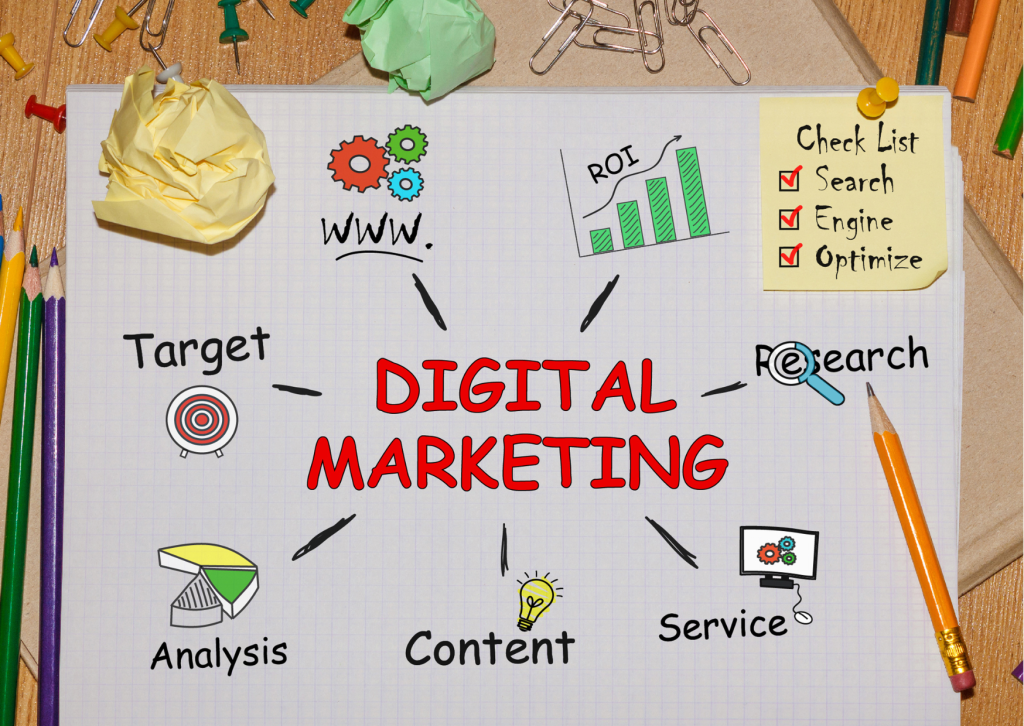10 Content Marketing Trends & Strategies We’ll See In 2024
In the fast-paced digital marketing realm, the heartbeat of success echoes in the rhythm of staying abreast of content marketing trends. While standing on the cusp of 2024, the significance of remaining current with these trends cannot be overstated. This unravels the pivotal role of an agile and informed content marketing strategy in navigating the digital landscape’s dynamic contours. Content Marketing Trends: Best Content Marketing Company UK In today’s fast-paced digital landscape, staying in tune with emerging content marketing trends is vital for businesses seeking a competitive edge. The digital landscape is constantly evolving, requiring a commitment to continuous learning and adaptation. It’s a complex tapestry interwoven with social media dynamics, search engine algorithms, consumer behaviours, and technological innovations. Marketers must not only react but anticipate these changes. Recognising subtle shifts in trends equips them to harness the power of content marketing effectively. Trends aren’t fleeting; they’re the foundation of relevance, shaping brand visibility, consumer perceptions, and engagement rules. In this quest for visibility and impact, awareness of emerging content marketing trends is a strategic imperative. Trend 1: Interactive Content Integration Interactive Content Integration is poised to redefine how businesses approach content creation, transcending the conventional static approach. This trend revolves around. -Infusing dynamic elements into content. -Fostering active engagement and participation from the audience. In 2024, its relevance will be heightened as digital consumers increasingly seek immersive and personalised experiences. In a landscape saturated with information, audience attention spans are fleeting. Interactive content, encompassing quizzes, polls, interactive infographics, and more, provides a solution by transforming passive consumers into active participants. Content marketing agencies in the UK, such as Jellie Digital, are pivotal in leveraging Interactive Content Integration. Experts specialise in creating engaging and interactive content strategies tailored to the target audience’s preferences. They understand the dynamics of user engagement and employ tools like interactive quizzes, polls, and infographics to enhance the overall content experience. This strategic approach not only aligns with the trends of user-centric content but also contributes to improved brand visibility, increased audience interaction, and, ultimately, business growth. Trend 2: Social Media Storytelling Mastery Social Media Storytelling Mastery emerges as a powerhouse trend in 2024. This trend encompasses the art of crafting compelling narratives through social media platforms, providing brands with a dynamic and impactful way to connect with their audience. Social Media Storytelling Mastery is about more than just narrating a brand’s journey; it’s about creating an immersive experience that resonates with the audience’s values and aspirations. Modern audiences crave authenticity, and storytelling provides the vehicle for brands to showcase their authentic selves. This trend also aligns with the increasing dominance of visual content as platforms like Instagram and TikTok continue to rise in prominence. To implement Social Media Storytelling Mastery effectively, consider the following tips: Know Your Audience: Tailor your stories to resonate with the values and interests of your target audience. Visual Appeal: Leverage the power of visuals—photos, videos, and graphics—to enhance the storytelling experience. Consistency Across Platforms: Ensure a consistent narrative across all social media platforms to reinforce your brand identity. The synergy of Interactive Content Integration and Social Media Storytelling Mastery amplifies your content marketing efforts. This dynamic duo captivates audiences through immersive experiences and compelling narratives. Leveraging a content marketing company in the UK, like Jellie Digital, enhances this approach, ensuring tailored and impactful content that resonates with the audience, fosters engagement, and strengthens brand connections in the competitive digital landscape. Trend 3: AI-Driven Personalization AI-driven personalisation is positioned as a transformative trend, reshaping business content experiences. This trend relies on artificial intelligence algorithms to analyse user behaviours and demographics, enabling the delivery of highly personalised and relevant content. Dynamic Content Adaptation: From personalised product recommendations to custom content suggestions, this approach ensures that each interaction caters to the specific needs and interests of the user. Relevance in 2024: This trend addresses the evolving expectations of consumers who seek tailored interactions in the digital landscape. UK Market Dynamics: The diverse and discerning nature of the UK audience makes AI-driven personalisation particularly relevant. This technology allows brands to navigate the intricacies of the UK market by delivering content that resonates with the nuanced preferences of British consumers. Meeting Digital-Savvy Expectations: Incorporating AI-driven personalisation into content strategies enables businesses to meet and exceed these expectations, fostering more robust customer relationships and brand loyalty. Anticipating Consumer Expectations: This trend represents a paradigm shift in how brands engage with their audience, providing a pathway to anticipate and exceed customer expectations in the dynamic landscape of content marketing. Strategies for Effective Content Marketing in 2024 In the dynamic landscape of 2024, where trends evolve rapidly, overarching strategies serve as the guiding principles that steer businesses towards sustained success in content marketing. Adaptive Content Framework: Implement an adaptive content framework that allows for swift adjustments based on emerging trends and shifting consumer behaviours. Multi-Channel Integration: Diversify your content distribution across multiple channels, recognising that audiences consume information in various ways. Data-Driven Decision Making: Leverage data analytics to inform your content strategies. Understand your audience’s behaviours, preferences, and engagement patterns. Cross-Functional Collaboration: Content marketing companies in the UK do not operate in isolation; they intertwine with various departments, such as sales, customer service, and product development. Brand Consistency: Maintain consistency in your brand messaging across all channels. A cohesive brand identity builds trust and recognition. Continuous Learning and Training: Invest in your content marketing team’s constant learning and training. Equip them with the skills needed to navigate the complexities of the content marketing landscape. User-Generated Content Integration: Encourage and integrate user-generated content into your strategy. User-generated content provides authentic perspectives and engages your audience in the creation process. SEO-Centric Approach: Optimise your content for search engines. A robust SEO strategy ensures your content is discoverable, driving organic traffic to your platforms. For UK businesses, partnering with a content marketing agency in the UK like Jellie Digital ensures tailored strategies that resonate with the nuanced preferences of British consumers, fostering stronger brand
10 Content Marketing Trends & Strategies We’ll See In 2024 Read More »




